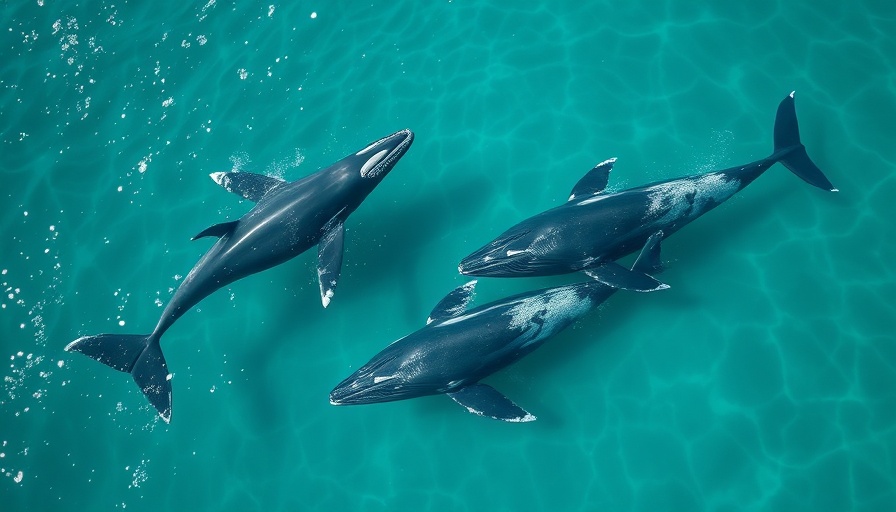
Whales: The Ocean’s Essential Nutrient Transporters
Recent research has illuminated an astonishing role that whales play in ocean ecosystems, acting as natural conveyor belts that transport critical nutrients thousands of miles—in their urine, deceased matter, and even sloughed skin. A collaborative study led by the University of Vermont (UVM) has revealed that great whales, including humpbacks and grays, move an impressive 4,000 tons of nitrogen every year from the nutrient-rich waters of Alaska to the warmer tropical regions of Hawaii.
The Great Whale Conveyor Belt Phenomenon
This phenomenon, aptly termed the "great whale conveyor belt," highlights how these magnificent creatures convey crucial nutrients essential for the growth of phytoplankton, which forms the base of the ocean food web. According to co-author Joe Roman, a UVM biologist, this nutrient transportation is vital for enhancing the productivity of clear, nitrogen-poor coastal waters that support diverse marine life. Historically, whale migrations have contributed significantly to nutrient cycling, with studies suggesting that nutrient inputs could have been three times greater before the severe decline in whale populations due to whaling practices.
How Whale Urine Fuels Ocean Health
Much of the nutrient transport occurs through whale urine, where nitrogen-rich urea becomes a vital resource for marine ecosystems. The whales, by releasing nutrients into relatively confined spaces, help nurture smaller coastal and coral reef ecosystems, akin to composting leaves for a garden. This helps sustain various marine species, including sharks and invertebrates, further bolstering ocean biodiversity in low-nutrient areas.
The Impact of Human Activity on Whale Populations and Ecosystems
The impact of human activities, particularly industrial whaling, has drastically reduced whale populations, which in turn has diminished the nutrient transport capabilities of these marine giants. Shifts in whale numbers are expected to alter ecosystem dynamics, pointing to the urgent need for conservation efforts to restore populations and thereby re-establish natural nutrient cycles critical for ocean health.
Conservation Insights: Rebuilding Whale Populations for Ocean Restoration
Efforts in sustainable conservation have shown promising signs, with some whale populations such as humpbacks rebounding in numbers. The revival of these populations is crucial not only for their survival but also for the restoration of the oceans' ecological balance. The study underlines the necessity of recognizing whales not just as large mammals but as key players in global nutrient distribution and marine health.
In conclusion, the critical role of whales in ocean ecosystems emphasizes the intrinsic link between biodiversity and environmental health. Understanding the health of the oceans goes hand-in-hand with efforts to protect whale populations. To explore strategies that can contribute to the resurgence of these majestic creatures and the ecosystems they sustain, consider taking part in conservation programs in your area.
 Add Row
Add Row  Add
Add 




Write A Comment